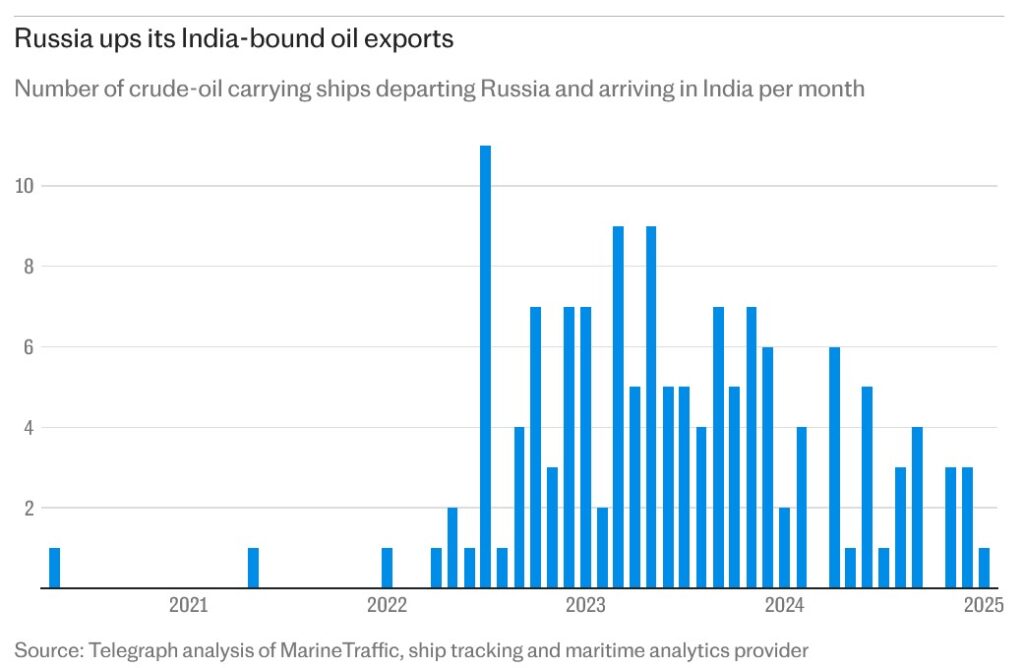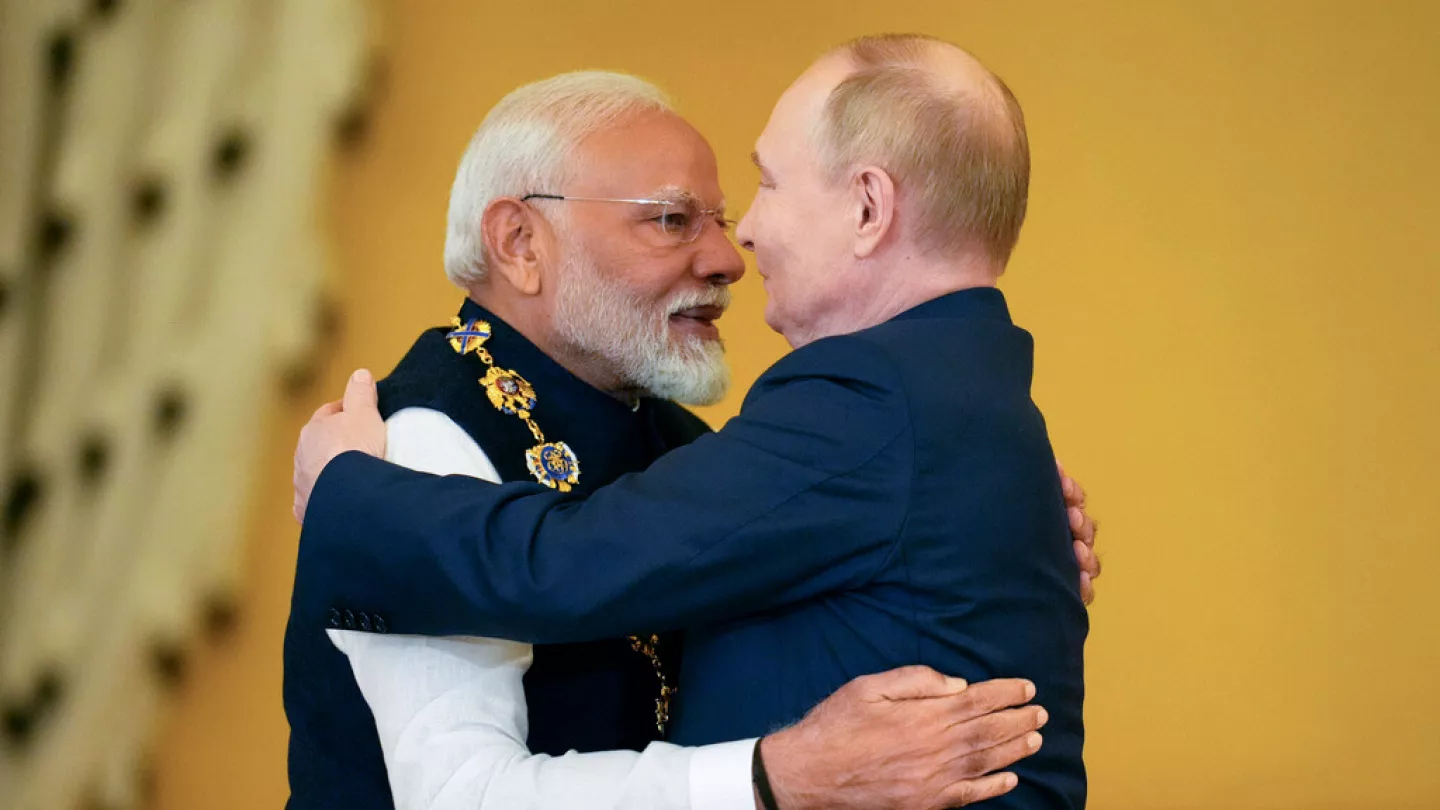In a notable editorial convergence, The Telegraph has published two pieces suggesting a striking possibility: India may hold the key to ending the war in Ukraine.
As peace negotiations remain stalled, US President Donald Trump is pursuing a new strategy — one that aims to cut off Russia’s oil income, the financial lifeline that allows Moscow to continue its military campaign. The logic is simple but consequential: as long as countries keep buying Russian oil, Russia can keep funding its war. And two of the biggest buyers are India and China.
One Telegraph report, by Senior Foreign Correspondent Adrian Blomfield and Data Journalist Meike Eijsberg, details Trump’s sharp pivot. After months of shielding Putin from serious consequences, the president is now threatening 100% tariffs on nations that continue to purchase Russian oil — a move aimed squarely at throttling Russia’s war economy.
Yet despite China being Russia’s top energy customer, Trump has refrained from criticizing Beijing. Instead, he has singled out India, the second-largest buyer.
“They’re fuelling the war machine, and if they’re going to do that, then I’m not happy,” Trump told CNBC, vowing further penalties for Delhi’s oil purchases.
According to the Global Trade Research Initiative, India’s Russian oil imports surged from near-zero pre-war to 2.15 million barrels per day by mid-2023, now making up around 45% of its total supply. That translated to $51 billion in revenues for Russia last year alone.

Telegraph column: India may be forced to reassess old alliances
In a separate opinion column, Colonel Tim Collins, former British Army officer, builds on this geopolitical moment. He argues that India’s decades-old strategic relationship with Russia — forged during the Cold War — is coming under pressure from new realities, particularly China’s growing regional dominance.
“India sees itself increasingly surrounded by potential enemies,” Collins writes, citing China’s rising influence in Sri Lanka, Bangladesh, and Pakistan, including military cooperation and infrastructure encroachment.
India’s military, still heavily reliant on Russian-made equipment, has been tested — most recently in the brief “100-hour war” with Pakistan. According to Collins, that conflict exposed drone capability gaps and other vulnerabilities, many linked to Chinese support for Pakistan.
These military setbacks have pushed India to diversify its defense partnerships, turning to US, French, and Israeli suppliers while accelerating domestic arms production. Yet its longstanding relationship with Russia has made any meaningful cooperation with Ukraine politically off-limits.

The strategic dilemma: Russia’s oil or Western security?
Taken together, The Telegraph’s reporting outlines a core question: Can India keep buying Russian oil while preparing for a future aligned with Western powers?
India’s balancing act is becoming harder. As a member of The Quad (with the US, Japan, and Australia), India is seen as a critical counterweight to China. Yet its energy dependence on Russia has, in Trump’s view, become a liability to the West — and a lifeline to Putin.
“If energy goes down enough, Putin is going to stop killing people,” Trump said last week. “If you get energy down another $10 a barrel, he’s going to have no choice.”
Despite this, Trump has avoided confronting China, which buys even more Russian oil — about 47% of Moscow’s exports. Instead, The Telegraph suggests India has become the central target of Trump’s pressure campaign — and potentially a decisive lever in ending the war.
Pragmatism vs. principle: Which way will Modi lean?
According to both reports, the direction of travel may ultimately depend on Prime Minister Narendra Modi’s calculation — between old loyalties to Moscow and new strategic needs.
“Perhaps a Trump charm offensive may be more decisive in the short term as opposed to any form of coercion or strong words,” Collins writes.
At stake is not just the global oil market or India’s own security posture, but possibly the trajectory of the war in Ukraine itself.
As The Telegraph implicitly argues, if India cuts or significantly reduces Russian oil imports — whether due to US pressure, regional insecurity, or long-term strategic shifts — the financial strain on the Kremlin could force a change in Putin’s calculus.




